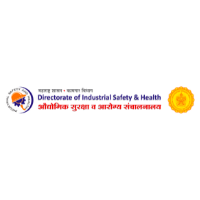What is Factory License?
A factory license, also known as an industrial license, is a legal document that grants permission to establish and operate a manufacturing unit. It is a mandatory requirement in many countries to ensure that factories comply with various laws, regulations, and safety standards. The license is issued by the appropriate government authority, such as the local municipal corporation or industrial development authority.
The purpose of a factory license is to regulate and monitor industrial activities to protect the interests of workers, the community, and the environment. It ensures that factories operate within the legal framework and follow specific guidelines related to safety, labor rights, pollution control, and other statutory provisions.
Why Factory License is Required?
- Legal Compliance: Factory licenses are necessary to ensure compliance with relevant laws, regulations, and standards.
- Safety Assurance: They promote a safe working environment and protect the well-being of workers.
- Consumer Protection: Factory licenses help ensure that manufactured products meet quality and safety standards, safeguarding consumer interests.
- Environmental Responsibility: They enforce environmental regulations and promote sustainable practices in manufacturing processes.
- Quality Control: Factory licenses require adherence to quality control measures, maintaining product standards and consistency.
- Government Monitoring: They enable regulatory authorities to monitor and control industrial activities, ensuring adherence to regulations.
- Public Health Protection: Factory licenses contribute to public health by preventing the production of substandard or hazardous goods.
- Risk Mitigation: They identify and address potential risks and hazards, minimizing the likelihood of accidents or incidents.
Check out the Factory License Video
What are the Benefits of a Factory License?
Legal Compliance
A factory license ensures that the manufacturing unit operates within the legal framework and complies with all relevant regulations and standards. This helps to avoid legal issues, penalties, and potential shutdowns due to non-compliance.
Safety and Worker Protection
Factory licenses require adherence to safety measures and guidelines, ensuring a safe working environment for employees. This includes provisions for fire safety, emergency exits, first aid facilities, and other safety protocols. The license helps protect the rights and well-being of workers.
Credibility and Reputation
Having a valid factory license enhances the credibility and reputation of the manufacturing unit. It demonstrates a commitment to compliance, quality standards, and ethical practices.
Business Opportunities
Certain contracts, tenders, or partnerships may require a valid factory license as a prerequisite. By having a license in place, manufacturers can seize these business opportunities, expand their customer base, and potentially increase revenue streams.
Environmental Compliance
Factory licenses often include environmental compliance requirements, ensuring that manufacturing units follow regulations related to waste management, pollution control, and resource conservation.
Employee Recruitment and Retention
A factory license can be a valuable asset when attracting and retaining skilled workers. Employees tend to prefer workplaces that prioritize safety, adhere to labor laws, and operate within a legal framework.
Who can get Factory License?
Agriculture Forestry & Fishing
Aerospace
Basic Metal & Fabricated Metal
Chemical Products and Fibers
Refined Petroleum Products
Automotive Industry
Shipbuilding
Pharmaceuticals
Nuclear Fuel
Mining & Quarrying
Machinery
Construction
Document Required for Factory License
Role of Shamkris and Process of Factory License
Shamkris adopts a results-oriented approach to compliance with mandatory licence requirements in the organization. A simple and guidance methodology help organisation to achieve licence in a timely manner and cost-effective. Shamkris support 100% in advisory, Guidance, Compliance with respect to license requirements to obtain approval.
The License process described below:
- Advisory for the document required
- Preparation of documents as per application & list of documents.
- Application File
- Inspection by the department if required
- Liason department
- Yearly Compliance if Applicable
- Renewal when due

